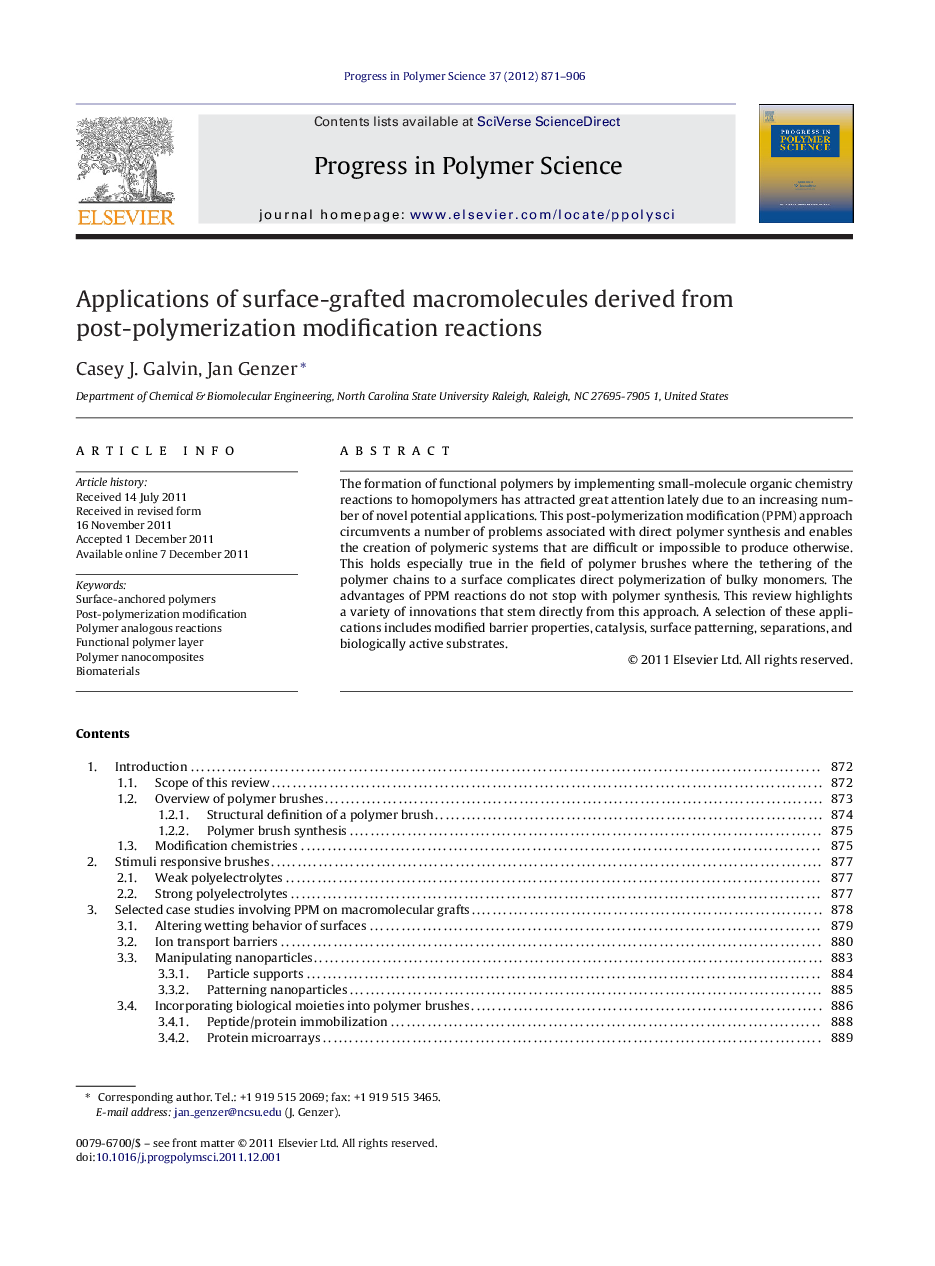| Article ID | Journal | Published Year | Pages | File Type |
|---|---|---|---|---|
| 5208339 | Progress in Polymer Science | 2012 | 36 Pages |
Abstract
The formation of functional polymers by implementing small-molecule organic chemistry reactions to homopolymers has attracted great attention lately due to an increasing number of novel potential applications. This post-polymerization modification (PPM) approach circumvents a number of problems associated with direct polymer synthesis and enables the creation of polymeric systems that are difficult or impossible to produce otherwise. This holds especially true in the field of polymer brushes where the tethering of the polymer chains to a surface complicates direct polymerization of bulky monomers. The advantages of PPM reactions do not stop with polymer synthesis. This review highlights a variety of innovations that stem directly from this approach. A selection of these applications includes modified barrier properties, catalysis, surface patterning, separations, and biologically active substrates.
Related Topics
Physical Sciences and Engineering
Chemistry
Organic Chemistry
Authors
Casey J. Galvin, Jan Genzer,
